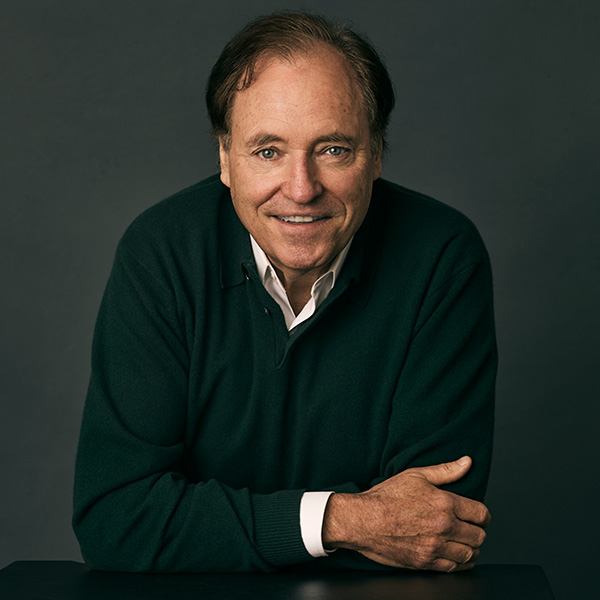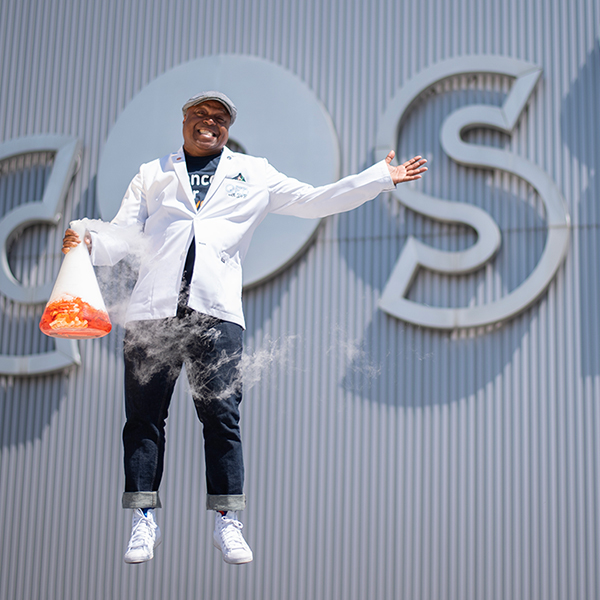The list of movies made under Bob Cooper’s watch, as a producer and senior studio executive, is mighty impressive.
It includes the biopic Maudie and Murderers Among Us: The Simon Wiesenthal Story, as well as And the Band Played On and Barbarians at the Gate from his time at HBO Pictures – all of which won awards.
And then there are the other compelling career stints, before he went stateside.
A newly minted lawyer in 1970, Cooper, BA’65, MA’68, BCL’69, opened the first storefront legal aid office in Canada in Montreal’s Pointe-St-Charles district.
From there, Quebec’s justice minister, the late Jérôme Choquette, BCL’48, tapped him to draft legislation to create a network of legal aid centres in disadvantaged areas.
Cooper then worked as a prosecutor on the Quebec Police Commission’s inquiry into organized crime where he once heard a threat on a wiretap directed at him – or more specifically, to his legs.
“I thought that was fantastic. Today, I’d be scared, [but] I was 22 or something,” says Cooper, who visited McGill campus this fall.
Growing up in Montreal, the son of an impresario, Cooper got to meet the likes of Nat King Cole and Frank Sinatra. As a kid, he performed magic shows at birthday parties, and at 19, went to California to study to be an actor at the Pasadena Playhouse for the summer.
“And then my parents just said ‘it’s enough already, we’re cutting you off. You get back home and you need a profession,’” Cooper recalls.
He entered McGill Law. He found the first six weeks “very depressing”, yet “for some strange reason, absolutely loved it.”
Cooper had a ‘“fabulous time” at McGill where he did three degrees. For his master’s thesis in sociology, Cooper wrote about Beatlemania and praises Professor Emeritus Maurice Pinard for giving him the green light on what was then an unconventional topic. “Maurice Pinard was amazing. He got it.”
His wife, Nessa Cooper, BA’67, MA’79, says she believes law school was a great foundation for Cooper’s career. It allowed him to see different points of view and “it just gave him a voice,” she says.
Cooper switched gears in 1974, becoming the host of CBC Television’s Ombudsman, a weekly public advocacy show.
He left the popular program in 1979 to become a producer. Among other things, he had learned, “I’m a control person and the control is behind the camera not in front of [it].”
One of his early films was The Terry Fox Story, which he sold to HBO, making it the cable network’s first original movie.
Cooper became president of HBO Pictures in the late 1980s.
“It was a great run. It was a lot of fun. And I had tremendous freedom, which you don’t often get,” Cooper says.
His boss had an amazing mandate, Cooper says, of former HBO chairman Michael Fuchs. Cooper said Fuchs told him: “All I ask from you, is don’t do middle-of-the-road vanilla. I need you to help brand it with me, brand this network. And find content that makes sense.
“So that was a license to really experiment a lot.
“People say that we did amazing films, we did well, we won all kinds of awards,” says Cooper, who acknowledges a few duds early on. His boss’s reaction to one early misfire – ‘at least it’s not vanilla’ – gave Cooper confidence that he really meant it when he told him to be fearless.
Recalling the Emmy Award-winning Barbarians at the Gate, which was based on a book about RJR Nabisco, Cooper says he’s never forgotten a skeptical response he once heard about the project: ‘You’re gonna do a comedy, that’s a true story, about a leveraged management buyout and someone’s gonna watch it?’
Viewers did, says Cooper. “They loved seeing rich people being dumber than them. It’s as simple as that.”
Among the acclaimed HBO movies during his tenure, Cooper is most proud of And the Band Played On “because it was so difficult.” The docudrama, based on Randy Shilts’ bestselling book about the AIDS crisis, faced controversy before it aired. But it received 14 Emmy nominations and won three, including Outstanding Made for Television Movie.
Cooper’s studio positions have included president of production at DreamWorks Pictures, where he oversaw development and production of its feature film slate, including American Beauty and Meet the Parents.
One of the projects Cooper now has in development at his production company, Landscape Entertainment, is a feature about John Dean, who served as White House counsel under former president Richard Nixon.
His advice to young people who want to purse a similar path?
“Stay away,” he cracks before the question is fully articulated.
In a more serious vein, Cooper says you need to know going in whether you can handle constant rejection. “Don’t run to L.A. because you can’t go there naked.” Go there when you have something.
“Canada is much more connected than it was before. There’s a real industry – start here,” says Cooper, who spoke to McGill students in several faculties during his September visit.
“I think the ones who do well are ones who can spot opportunities when no one else sees them. And I think that’s been a skill that I didn’t know I had.”


